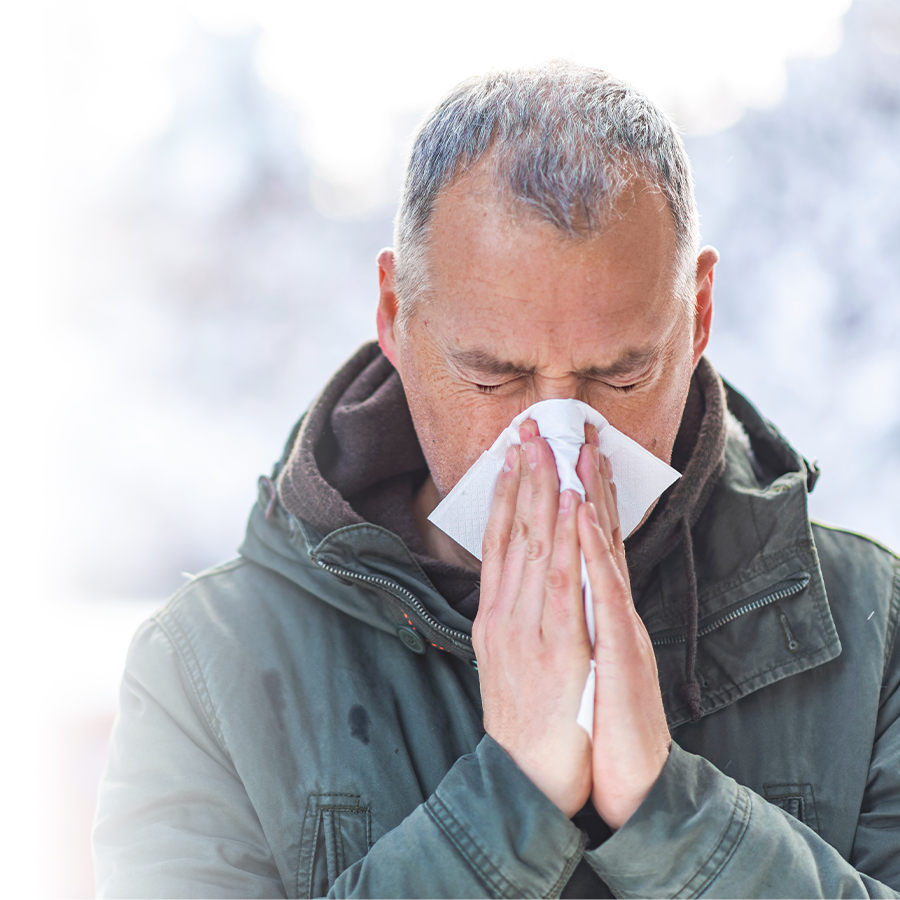In winter, episodes of the common cold are frequent, and frankly, unpleasant. Find out how to try to avoid them.
The common cold: a frequent occurrence in winter
In winter, we marvel to see our beautiful country covered in a blanket of white snow. We look forward to enjoying hikes, skiing, snowshoeing or walks in the snow. However, the joys of winter can sometimes be overshadowed by the onset of a respiratory infection, such as the common cold.
The cold virus is highly contagious, and winter is the ideal time for it to spread.
People rarely get through winter without being affected by a cold at least once. Contrary to the flu, a cold cannot be prevented by vaccination. Once the infection has developed, you must rely on your immune system to fight it. Certain measures can help to strengthen its defence mechanisms.
A cold will usually resolve itself after about a week or two, but not without causing several inconveniences. Some typical symptoms include:
- nasal congestion
- runny nose
- coughing
- sneezing
- headache
- fever
Some episodes of the common cold are mild; others can really compromise the affected person's activities, well-being, and quality of life.
How to avoid catching a cold
Here are a few tips intended to reduce the risk of catching a cold:
- Wash your hands often.
- Choose a healthy and balanced diet.
- Set aside some time to rest.
- Get adequate sleep. Quality sleep strengthens your immune system.
- Reduce stress in your life.
- Avoid smoking or exposure to tobacco smoke. Smoking weakens your immune system and exposes you to respiratory infections, among other things.
Daily cleansing of nasal passages using a saline solution can help to prevent the frequency and duration of colds. Including this in your routine has a number of advantages, especially for babies and young children, given their inability to blow their noses. If you have a cold, this also reduces the risk of ear and sinus infections, in addition to relieving symptoms such as congestion, runny nose, and sneezing.
I have a cold! What can I do?
Since there is no cure for the common cold, the best thing you can do is to reduce the symptoms that afflict you. Fortunately, there are many over-the-counter medications available for this purpose. These include:
- oral or topical (sprayed in the nose) decongestants, which reduce congestion
- antitussives, which ease coughing
- antihistamines, which help to control runny nose and sneezing
- expectorants, which help eliminate bronchial secretions
- lozenges, which relieve a sore throat, and
- analgesics, which fight pain or fever
Speak to your pharmacist to obtain additional information on how to prevent colds and ease symptoms. Never take over-the-counter medications without first asking your pharmacist for advice!

